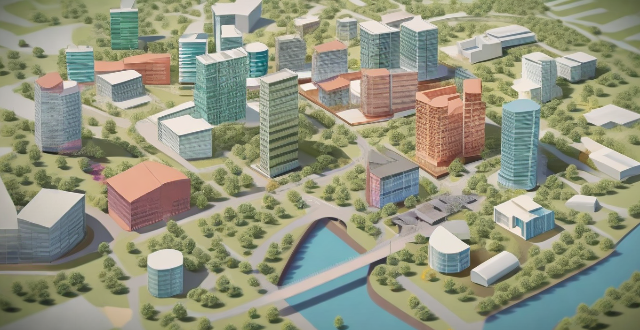Ensuring equal access to vaccines worldwide is crucial and requires a multifaceted approach. Strategies include global cooperation, investment in research, fair distribution mechanisms, capacity building in developing countries, advocacy and education, and legislative measures. Collaboration between nations and public-private partnerships can help share resources for vaccine development and distribution. Funding for vaccine research and technology transfer to developing nations is essential. Fair distribution mechanisms like COVAX and tiered pricing can ensure equitable access. Capacity building in developing countries involves infrastructure development and training healthcare workers. Advocacy and education campaigns can raise awareness and address misinformation. Legislative measures such as IPR waivers and international agreements can provide a legal framework for fair distribution. Collectively, these efforts can help achieve equal access to vaccines worldwide.

Ensuring Equal Access to Vaccines Worldwide
Ensuring equal access to vaccines worldwide is a complex issue that requires a multifaceted approach. Here are some strategies that can be employed to achieve this goal:
1. Global Cooperation and Partnership
* Collaboration between Nations: Countries should work together to share knowledge, technology, and resources for vaccine development and distribution. This can be achieved through platforms like the World Health Organization (WHO) and the Coalition for Epidemic Preparedness Innovations (CEPI).
* Public-Private Partnerships: Collaborations between public sector agencies and private companies can help in pooling resources and expertise for vaccine research, production, and equitable distribution.
2. Investment in Research and Development
* Funding for Vaccine Research: Governments, international organizations, and private sectors should invest more in research and development of new vaccines. This includes funding for clinical trials and regulatory approval processes.
* Technology Transfer: Advanced countries should support technology transfer to developing nations to build their capacity for vaccine production and distribution.
3. Fair Distribution Mechanisms
* COVAX Facility: The COVID-19 Vaccines Global Access (COVAX) initiative aims to ensure equitable distribution of COVID-19 vaccines globally. This model can be extended to other vaccines as well.
* Tiered Pricing: A system where vaccines are sold at different prices based on the economic status of the country can help make them more affordable for low-income countries.
4. Capacity Building in Developing Countries
* Infrastructure Development: Investing in healthcare infrastructure in developing countries will help them store, transport, and administer vaccines effectively.
* Training Healthcare Workers: Providing training and resources to healthcare workers in these countries will ensure that vaccines are administered safely and efficiently.
5. Advocacy and Education
* Raising Awareness: Campaigns to educate people about the importance of vaccination can increase demand for vaccines, which in turn can drive production and equitable distribution.
* Addressing Misinformation: Combatting misinformation about vaccines through factual information campaigns can help build trust among populations and encourage them to get vaccinated.
6. Legislative Measures
* Intellectual Property Rights (IPR) Waivers: Waiving IPRs for vaccines during public health emergencies can enable wider production by allowing generic manufacturers to produce life-saving drugs without fear of litigation.
* International Agreements: International treaties or agreements mandating equal access to vaccines can provide a legal framework for ensuring fair distribution.
By employing these strategies, we can move closer to the goal of ensuring equal access to vaccines worldwide. It requires collective efforts from governments, international organizations, private sectors, civil society organizations, and individuals to address this global challenge effectively.